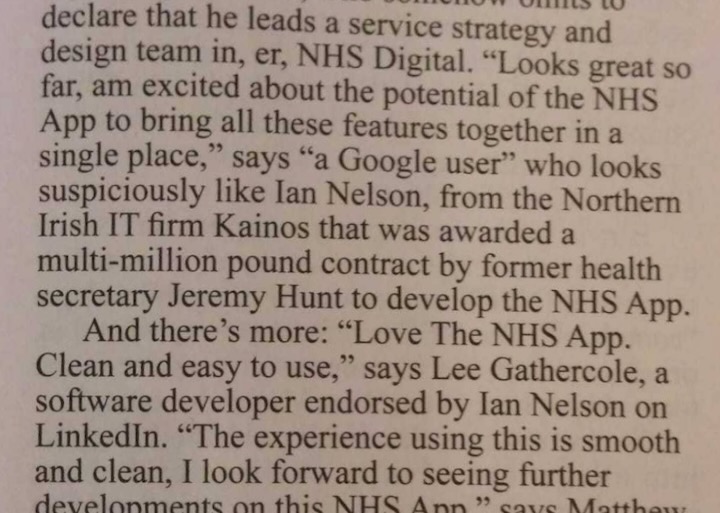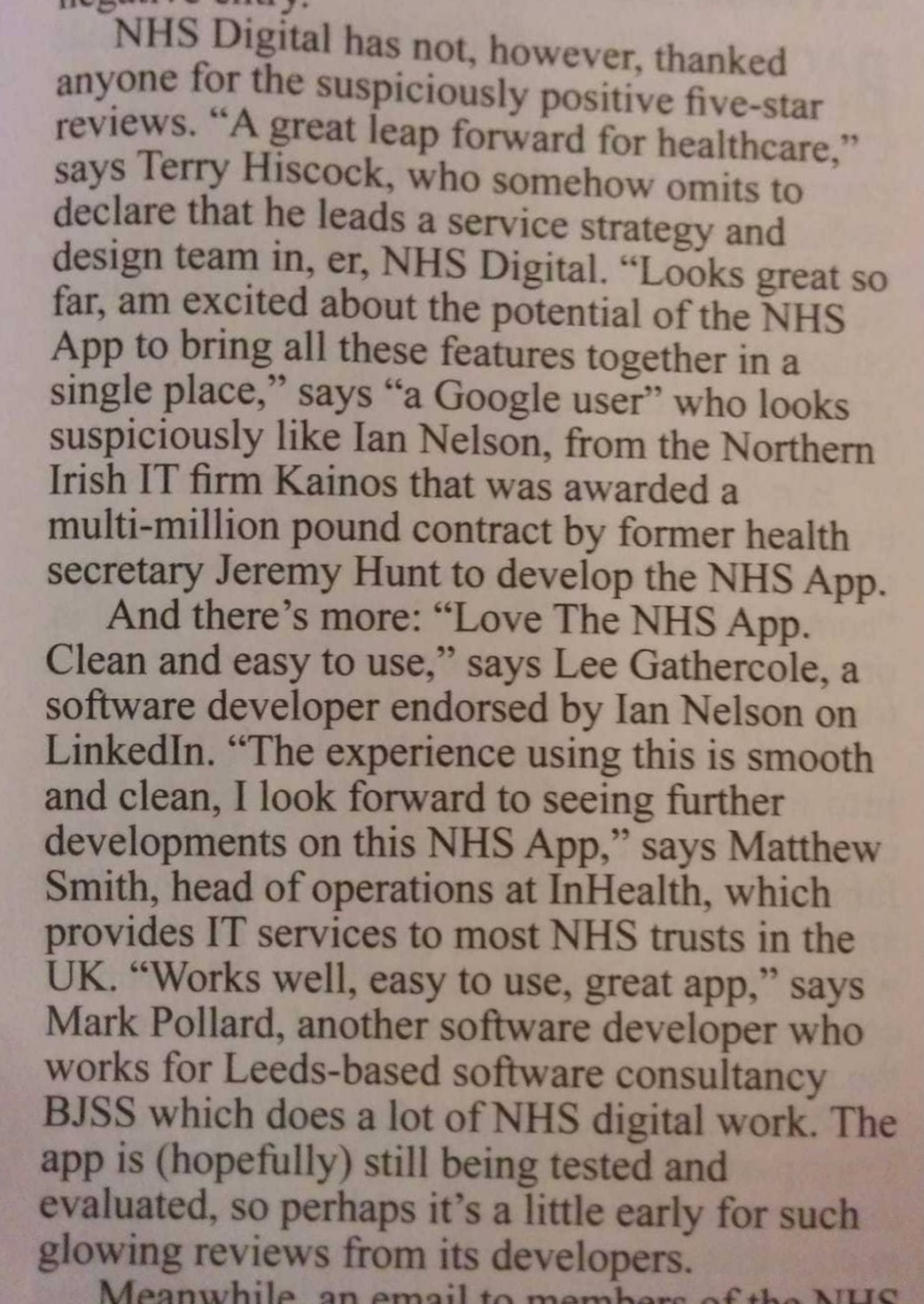Back at the start of 2019, when the NHS App had just launched, it had something of a discoverability problem. The kind of problem where people would type “NHS App” into the App Store search bar and be presented with results including Microsoft Outlook, WhatsApp, Candy Crush and in fact pretty much anything but the NHS App. Not ideal for a flagship digital health intervention.
I was contracting as part of the Kainos team helping NHS Digital deliver the App, alongside partners from BJSS. We’d toiled long and hard during 2018 to build a thing that could handle login, appointments, repeat prescriptions, medical record, and more. But what good is your lovingly crafted digital gateway to the NHS if nobody can find it?
So, in a moment of guerrilla marketing meets civic-minded enthusiasm, a few of us involved in the project thought it would be a good idea to leave five-star reviews on the App Store and Play Store.
And then, a few weeks later… we made Private Eye.
There, under the reliably snarky public health IT column, was this paragraph:
“‘Looks great so far, am excited about the potential of the NHS App to bring all these features together in a single place,’ says ‘a Google user’ who looks suspiciously like Ian Nelson, from the Northern Irish IT firm Kainos…”
Busted.
I assume that they had plugged my Google profile icon into an image search, and used it to find my LinkedIn profile, as the following paragraph highlighted my connections to other colleagues who had also left reviews.
They weren’t wrong. I had indeed written a glowing review of our own work. I thought of it less as astroturfing and more as… watering the lawn early. A little nudge to get things rolling. But when Private Eye comes calling, nuance tends to go out the window.
Still, I’ve always said that if you’re going to end up in a national publication, let it be one with a reputation for witty cynicism and terrible puns. A brief moment in the spotlight, then — just enough to be humbled, not enough to get invited to speak at a conference.
Reflections, years later
I felt awful when originally presented with that clipping from Private Eye. A real sinking feeling in my stomach. I fully anticipated it leading to my being thrown out of Bridgewater Place, my boxes of Twinings Tea clutched under one arm. I’ve lost public sector contracts for far less. But Kainos and NHS Digital were remarkably supportive, laughing it off and telling me that there was nothing to worry about. I stayed on the project for a further four years, through COVID, various third-party integrations, and the launch of NHS App notifications and messaging.
Truth is, shipping software in the public sector is tough. Especially when it’s high-profile, politically sensitive, subject to time and budgetary constraints, and being judged on social media and in Parliament and in Private Eye.
We launched the NHS App in a hurry, to meet an audacious “end of 2018” goal, with a lot still to do. But we believed in it. Sometimes belief looks like writing comprehensive integration tests. Sometimes it looks like monitoring logs from the pub at 7pm. And yes, sometimes it looks like quietly dropping a five-star review into the Play Store, hoping to get the downloads flowing.
Would I do it again? Probably not. Or at the very least, I’d post under a less Google-able account. But I still stand by the sentiment — we’d built something useful, and we wanted people to find it. Besides, it’s not every day that your code ends up in production and your name ends up in a satirical magazine. As career milestones go, it beats a lanyard.

